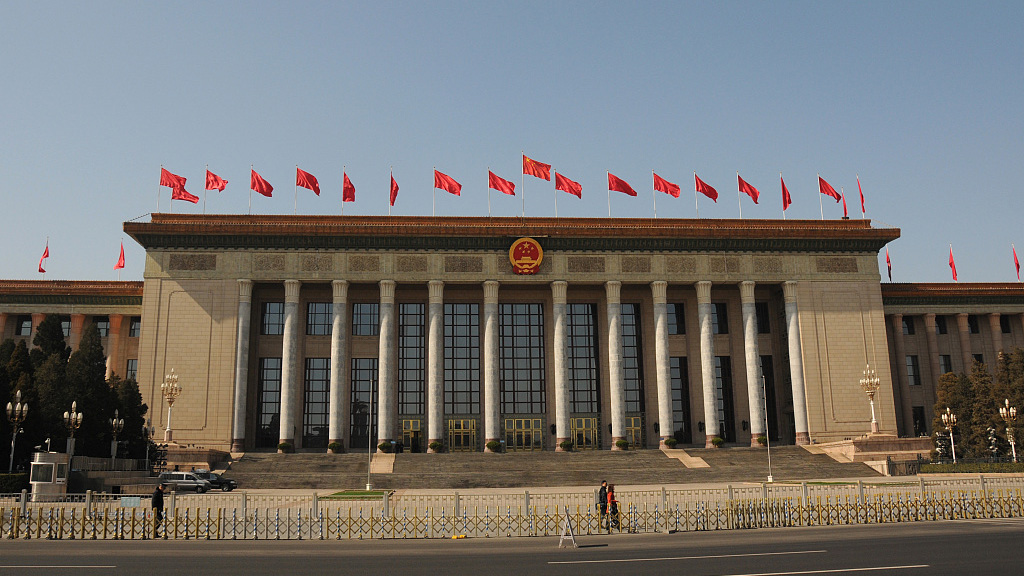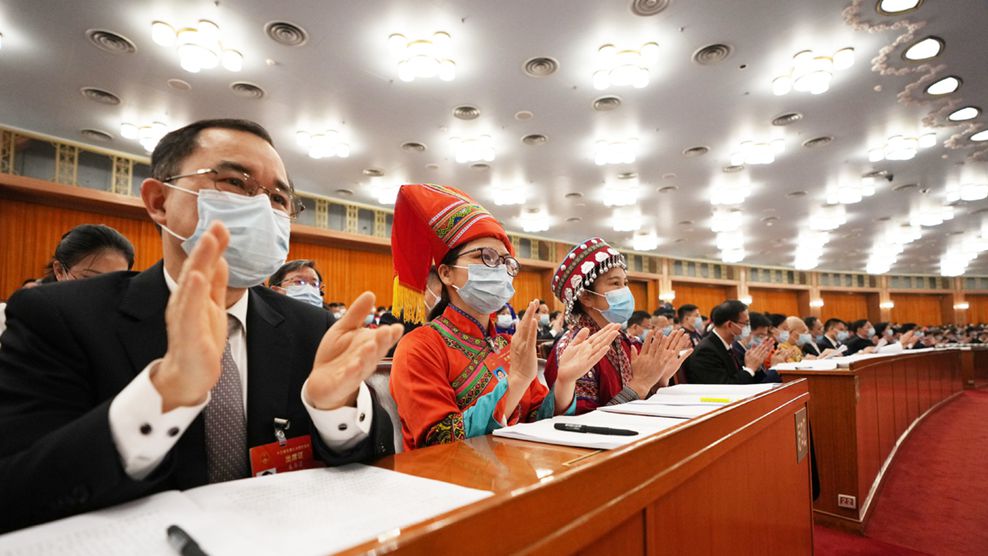03:03

China's 13th National People's Congress (NPC) held its fourth annual session in Beijing. Deputies at the session will deliberate on draft legal amendments of two basic laws stipulating how China's highest organ of state power operates - the Organic Law of the National People's Congress and the Procedural Rules of the National People's Congress.
Major revisions to the Organic Law of the NPC include the addition of the "General Provisions" chapter; improvement of stipulations on the functions and powers of the Presidium and Chairperson's meeting of the NPC Standing Committee; improvement of relevant regulations of the special committees of the NPC; adjustment to the needs of China's supervisory system reforms; improvement in the power of appointments and removals of the NPC Standing Committee; attach more importance to the work of deputies and maintain close ties with them.
The amendments clarify the role of the NPC and the NPC Standing Committee in building a socialist state under the rule of law, and will help them adapt to China's deepening supervisory reforms.
If passed, experts said the law will enable the NPC and the NPC Standing Committee to better hear people's comments and suggestions, and allow deputies to take part in more legislative activities.
Wang Chen, Vice Chairman of the Standing Committee of the National People's Congress, said the revision of the Organic Law and procedural rules the NPC is of great importance to upholding a people-centered approach and consolidating the strengths of socialist democracy with Chinese characteristics.
"It will help deepen the achievements of state institutional reform and ensure the enhanced division of duties and cooperation among state bodies, so as to enable them to lead and organize socialist modernization, and promote the modernization of China's governance system and capacity," said Wang.

The fourth session of the 13th National People's Congress opens at the Great Hall of the People in Beijing, China, March 5, 2021. /Xinhua
The fourth session of the 13th National People's Congress opens at the Great Hall of the People in Beijing, China, March 5, 2021. /Xinhua
Also embodied in the draft amendments of the two laws is the experience that China's NPC has gained in previous conferences, especially the one held in 2020 amid the pandemic, in simplifying the overall procedure.
"We can say that it was a short but concise conference. Deputies' deliberation of the draft laws was adequate," said Cai Renjun, Deputy Director of NPC Standing Committee's National Law Office.
Cai gave an example of the new Civil Code adopted at last year's Two Sessions, saying that deputies put forward many opinions on drafting the Civil Code, which have been incorporated and improved in the revised draft.
He explained that the former deliberation procedures for bills will be streamlined, which complies with the country's Legislation Law, while also help to improve the quality and efficiency of the deliberation meetings.
The draft amendments feature what Chinese President Xi Jinping called China's "people's democracy," in particular, "whole-process" democracy.
Cai said the institutional principle written in the law has been put into practice in a number of different forms. For example, the NPC and its Standing Committee exercise legislative power, with decisions made on collective discussions and deliberations.
"The 13th National People's Congress and its Standing Committee have made certain explorations and established some working mechanisms to strengthen contacts. The establishment of grassroots-level legislative contact points also shows that the NPC and its Standing Committee reflect the suggestions and voices of the people," Cai said.
Besides, the new draft amendment also stipulates the session to be more open and transparent, including making the agenda and information from the meetings public, as well as making representatives and persons in charge more accessible to the press.
Experts said these new provisions aim to further enhance the people's understanding of the supervision over the exercise of power by the highest organ of state power.

